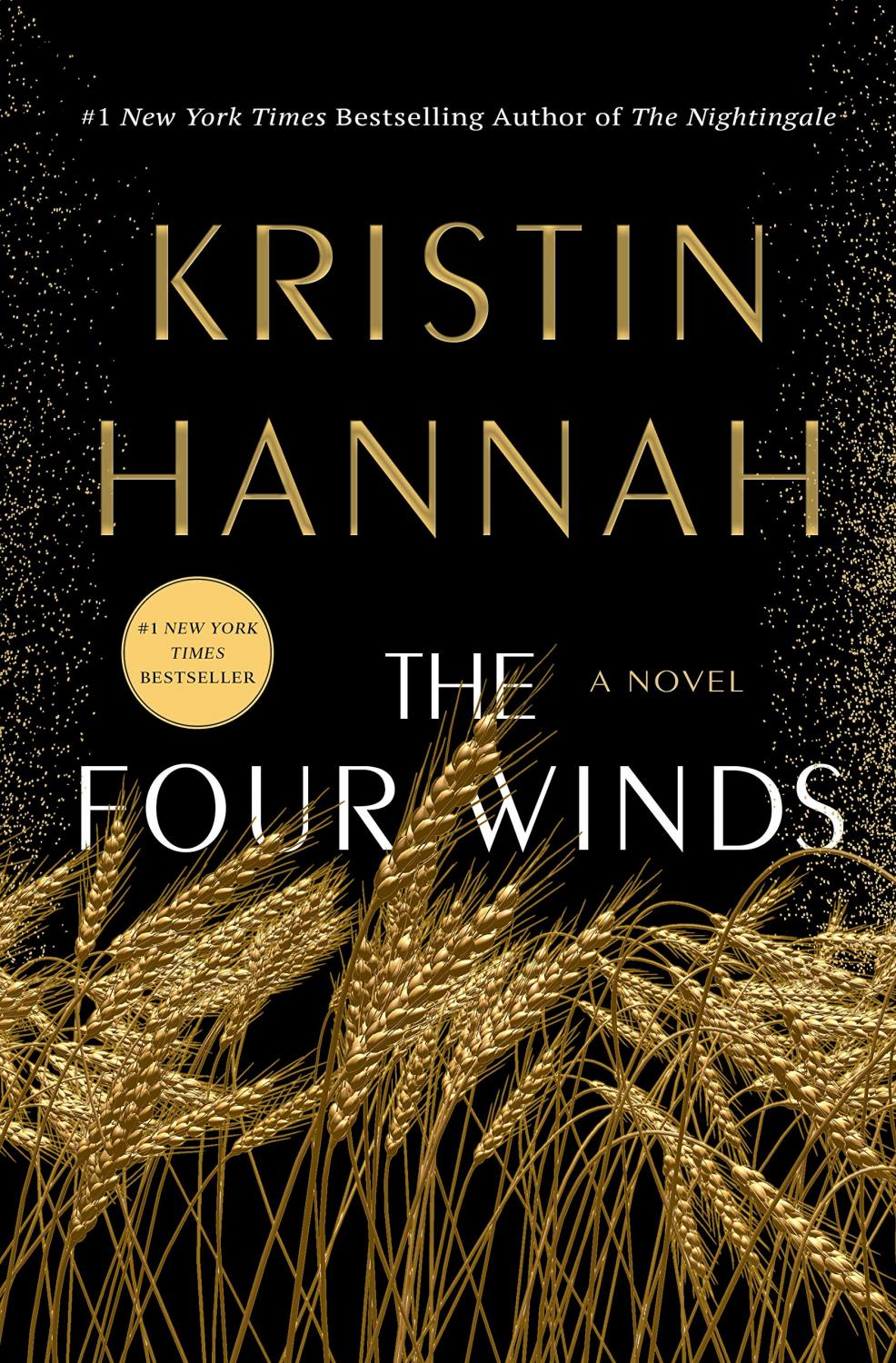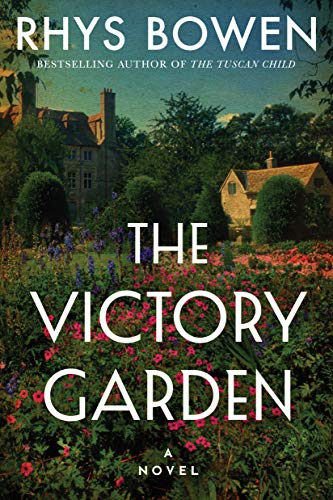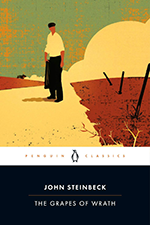 The Four Winds
The Four Winds
by Kristin Hannah
GENRE: Historical Fiction, Domestic Fiction
Elsa Marinelli is struggling to survive the Texas Dust Bowl and a careless husband, watching as everyone around her slowly leaves her hometown. As the threats of the Great Depression loom, she will have pack up her life and risk the dangerous move out west, struggling to survive the life of a migrant worker and provide for her two children. Hannah delivers again with a novel celebrating the strength and dignity of everyday women.
 Author Biography
Author Biography
Kristin Hannah is an award-winning and bestselling author of more than 20 novels including the international blockbuster, The Nightingale, Winter Garden, Night Road, and Firefly Lane.
Her novel, The Nightingale, has been published in 43 languages and is currently in movie production at TriStar Pictures, which also optioned her novel, The Great Alone. Her novel, Home Front has been optioned for film by 1492 Films (produced the Oscar-nominated The Help) with Chris Columbus attached to direct.
Kristin is a former-lawyer-turned-writer who lives in the Pacific Northwest with her husband. Her novel, Firefly Lane, became a runaway bestseller in 2009, a touchstone novel that brought women together, and The Nightingale, in 2015 was voted a best book of the year by Amazon, Buzzfeed, iTunes, Library Journal, Paste, The Wall Street Journal and The Week. Additionally, the novel won the coveted Goodreads and People’s Choice Awards. The audiobook of The Nightingale won the Audiobook of the Year Award in the fiction category. - Author's website
Booklist
With this emotionally charged epic of Dust Bowl-era Texas and its dramatic aftermath, the prolific Hannah has added another outstanding novel to her popular repertoire. In 1921, Elsa Wolcott is a tall, bookish woman of 25 whose soul is stifled by her superficial parents. By 1934, after marrying Rafe Martinelli, a young Italian Catholic who was the first man to show her affection, Elsa is a mother of two who has found a home on her beloved in-laws’ farm. Severe drought and terrible dust storms affect everyone in this proud family, and they are all forced to make tough choices. This wide-ranging saga ticks all the boxes for deeply satisfying historical fiction. Elsa is an achingly real character whose sense of self-worth slowly emerges through trying circumstances, and her shifting relationship with her rebellious daughter, Loreda, is particularly moving. Hannah brings the impact of the environmental devastation on the Great Plains down to a personal level with ample period-appropriate details and reactions, showing how people’s love for their land made them reluctant to leave. The storytelling is propulsive, and the contemporary relevance of the novel’s themes—among them, how outsiders are unfairly blamed for economic inequalities—provides additional depth in this rich, rewarding read about family ties, perseverance, and women’s friendships and fortitude. HIGH-DEMAND BACKSTORY: Hannah is a consistent best-seller, and this sharply relevant tale of a past catastrophic time will exert a particularly strong magnetic force. -- Sarah Johnson (Reviewed 10/15/2020) (Booklist, vol 117, number 4 , p32)
Publisher's Weekly
Hannah (The Great Alone) brings Dust Bowl migration to life in this riveting story of love, courage, and sacrifice. In 1934 Texas, after four years of drought, the Martinelli farm is no longer thriving, but Elsa is attached to the land and her in-laws, and she works tirelessly and cares for her children, 12-year-old Loreda and seven-year-old Anthony. Her husband, Rafe, has become distant and something of a hard drinker, and after he abandons them, Elsa reluctantly leaves with her children for California with the promise of steady work. Her dreams of a better future are interrupted by the discrimination they face in the unwelcoming town of Welty, where they are forced to live in a migrant camp and work for extremely low wages picking cotton. When Elsa’s meager wages are further reduced and she has the opportunity to join striking workers, she must decide whether to face the dangers of standing up for herself and her fellow workers. Hannah combines gritty realism with emotionally rich characters and lyrical prose that rings brightly and true from the first line (“Hope is a coin I carry: an American penny, given to me by a man I came to love”). In Elsa, a woman who fiercely defends her principles and those she loves, Hannah brilliantly revives the ghost of Tom Joad. (Feb.) --Staff (Reviewed 11/09/2020) (Publishers Weekly, vol 267, issue 45, p)
Kirkus Reviews
The miseries of the Depression and Dust Bowl years shape the destiny of a Texas family. “Hope is a coin I carry: an American penny, given to me by a man I came to love. There were times in my journey when I felt as if that penny and the hope it represented were the only things that kept me going.” We meet Elsa Wolcott in Dalhart, Texas, in 1921, on the eve of her 25th birthday, and wind up with her in California in 1936 in a saga of almost unrelieved woe. Despised by her shallow parents and sisters for being sickly and unattractive—“too tall, too thin, too pale, too unsure of herself”—Elsa escapes their cruelty when a single night of abandon leads to pregnancy and forced marriage to the son of Italian immigrant farmers. Though she finds some joy working the land, tending the animals, and learning her way around Mama Rose's kitchen, her marriage is never happy, the pleasures of early motherhood are brief, and soon the disastrous droughts of the 1930s drive all the farmers of the area to despair and starvation. Elsa's search for a better life for her children takes them out west to California, where things turn out to be even worse. While she never overcomes her low self-esteem about her looks, Elsa displays an iron core of character and courage as she faces dust storms, floods, hunger riots, homelessness, poverty, the misery of migrant labor, bigotry, union busting, violent goons, and more. The pedantic aims of the novel are hard to ignore as Hannah embodies her history lesson in what feels like a series of sepia-toned postcards depicting melodramatic scenes and clichéd emotions. For devoted Hannah fans in search of a good cry. (Kirkus Reviews, December 1, 2020)
 The Victory Garden
The Victory Garden
by Rhys Bowen
Engaged to an Australian pilot during World War I, Emily volunteers to tend the neglected grounds of a Devonshire estate where she finds inspiration and support in an herbalist's long-forgotten journals.
 The Grapes of Wrath
The Grapes of Wrath
by John Steinbeck
First published in 1939, Steinbeck’s Pulitzer Prize-winning epic of the Great Depression chronicles the Dust Bowl migration of the 1930s and tells the story of one Oklahoma farm family, the Joads—driven from their homestead and forced to travel west to the promised land of California. Out of their trials and their repeated collisions against the hard realities of an America divided into Haves and Have-Nots evolves a drama that is intensely human yet majestic in its scale and moral vision, elemental yet plainspoken, tragic but ultimately stirring in its human dignity. A portrait of the conflict between the powerful and the powerless, of one man’s fierce reaction to injustice, and of one woman’s stoical strength, the novel captures the horrors of the Great Depression and probes into the very nature of equality and justice in America. At once a naturalistic epic, captivity narrative, road novel, and transcendental gospel, Steinbeck’s powerful landmark novel is perhaps the most American of American Classics.
 Go As a River
Go As a River
by Shelley Read
On a cool autumn day in 1948, Victoria Nash delivers late-season peaches from her family's farm set amid the wild beauty of Colorado. As she heads into her village, a disheveled stranger stops to ask her the way. How she chooses to answer will unknowingly alter the course of both their young lives.
So begins the mesmerizing story of split-second choices and courageous acts that propel Victoria away from the only home she has ever known and towards a reckoning with loss, hope and her own untapped strength.
Gathering all the pieces of her small and extraordinary existence, spinning through the eddies of desire, heartbreak and betrayal, she will arrive at a single rocky decision that will change her life forever.